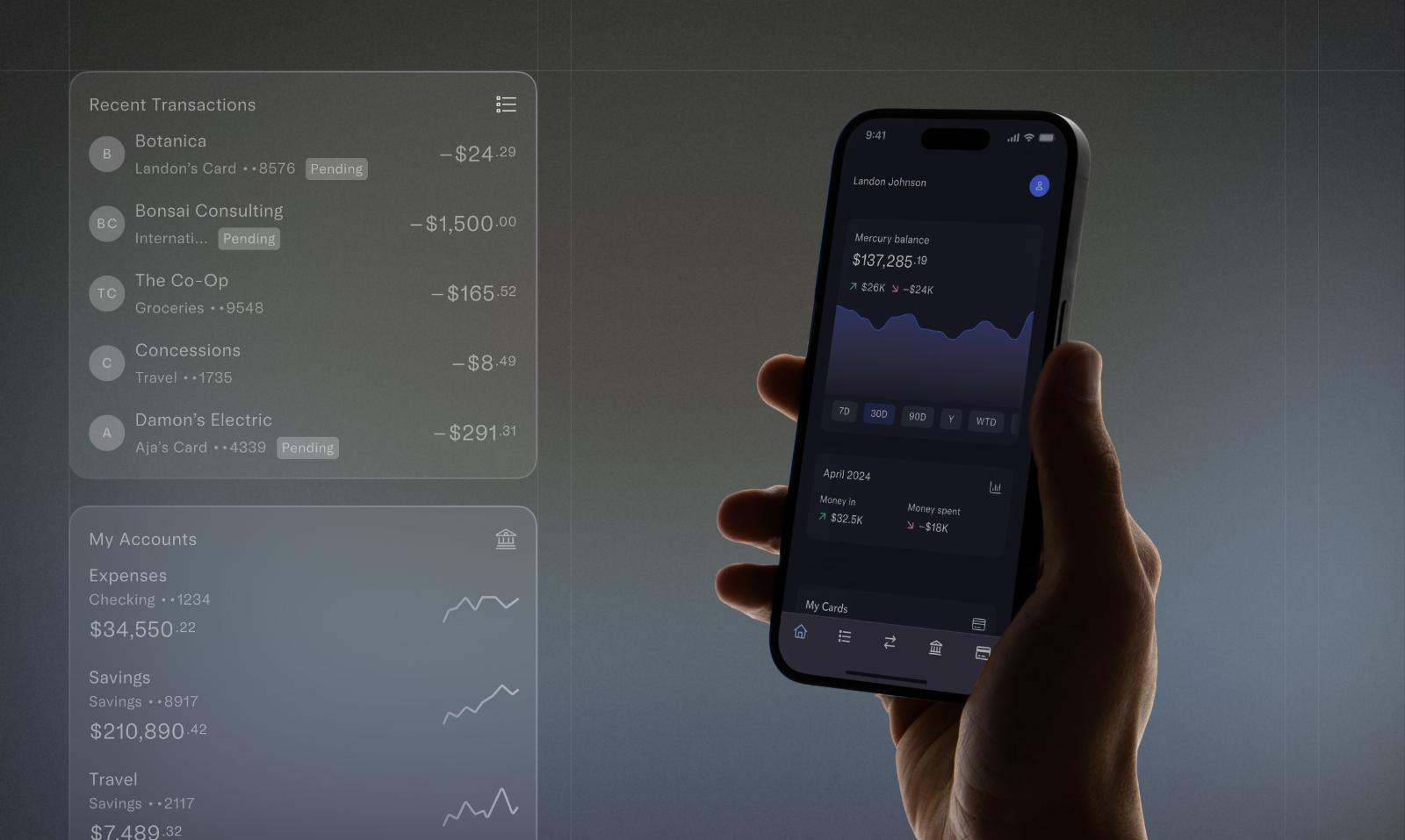
Fintech startup Mercury, which is under regulatory scrutiny, expands into consumer banking
Reading Time: 3 minutesBusiness banking startup Mercury, founded in 2020, is now launching a consumer banking product. Mercury today serves more than 100,000 businesses, many of which are startups, via its B2B practice.
The expansion is a natural move for the company and one that has been in the works for a couple of years, according to Immad Akhund, Mercury’s co-founder and CEO.
While there are plenty of neobanks, many of them ‘focus on the underbanked. It’s not a great market for power users’ who need features like wire transfers or support for multiple users, features that Mercury’s service offers, according to Akhund. Other features are of the type expected by banking power users: multiple debit cards with custom spending limits, access up to $5 million in FDIC insurance through its partner banks and their sweep networks, and interest-bearing savings accounts.
Essentially, Mercury hopes to convert many of its business clients into customers. It’s not going after the masses like say Chime or Dave.
The expansion into personal banking comes at an interesting time for Mercury, which recently made headlines for being the target of federal scrutiny around its practice of allowing foreign companies to open accounts through one of its partners, Choice Bank.
According to a report by The Information, the FDIC was ‘concerned’ that Choice ‘had opened Mercury accounts in legally risky countries.’ Officials also reportedly chastised Choice for letting overseas Mercury customers ‘open thousands of accounts using questionable methods to prove they had a presence in the U.S.’
And that’s not all. The FDIC also wasn’t happy that Choice hadn’t ‘vetted a compliance system Mercury was using, which the agency said was flagging a curiously low number of suspicious transactions.’
When asked about The Information’s report, a Mercury spokesperson emphasized that the company is investing in its risk and compliance teams. The person also said the fintech partner banking market as a whole has been the target of more regulatory scrutiny.
Alexey Likuev, who led the buildout of the consumer offering for Mercury, acknowledges there are ‘definitely more rigorous regulations around consumer protection’ and said the company has been mindful of those regulations when it built out its consumer product.
Crossing over
But success in B2B banking doesn’t automatically queue up Mercury to handle consumer banking. Each has differing regulations and compliance issues, noted Gartner analyst Agustin Rubini. Risk management for personal banking, for instance, is about assessing the individual’s financial stability, ‘which can be less predictable compared to businesses,’ he said.
More than that, adhering to stringent regulatory requirements can be ‘challenging’ for startups, he warns. ‘The complexities increase when partnering with a bank due to the additional layers of regulation that apply to banking services,’ he said. ‘This includes everything from anti-money laundering (AML) protocols to meeting capital requirements.’
Rubini added that partnering with a bank can help the startup by providing an initial platform and compliance framework, but then scaling up operations to a larger customer base can open up a different can of worms. Startups need ‘substantial capital and strategic planning’ to do that well while staying competitive, and without running afoul of regulators.
That’s one of the main reasons Mercury is expanding in this direction. It could leverage much of the software powering its B2B product for its consumer offering, Akhund said.
It’s also not the only fintech thinking like this. Onyx Private, with a similar offering, recently did a reverse move, pivoting from B2C to B2B.
Besides earning revenue off of interchange fees and the interest rate spread, Mercury will make money by charging users an annual subscription fee of $240 upon the first deposit and then annually after that. Last year, it touted a big bump in business following the SVB crisis, and a recent report from Kruze Consulting showed that 40% of startups created after the SVB crisis have an account with Mercury.
The company said it’s had seven consecutive quarters of cash flow and EBITDA profitability as of March 2024. While it would not reveal hard revenue figures, it also claims that its new revenue grew by 180% last year while its customer base climbed by 60% and transaction volume by 90% to $95 billion as of January 2024.
With that growth, the startup has been hiring. Presently Mercury has 620 employees, compared to 440 at the start of 2023.
Ref: techcrunch
MediaDownloader.net -> Free Online Video Downloader, Download Any Video From YouTube, VK, Vimeo, Twitter, Twitch, Tumblr, Tiktok, Telegram, TED, Streamable, Soundcloud, Snapchat, Share, Rumble, Reddit, PuhuTV, Pinterest, Periscope, Ok.ru, MxTakatak, Mixcloud, Mashable, LinkedIn, Likee, Kwai, Izlesene, Instagram, Imgur, IMDB, Ifunny, Gaana, Flickr, Febspot, Facebook, ESPN, Douyin, Dailymotion, Buzzfeed, BluTV, Blogger, Bitchute, Bilibili, Bandcamp, Akıllı, 9GAG